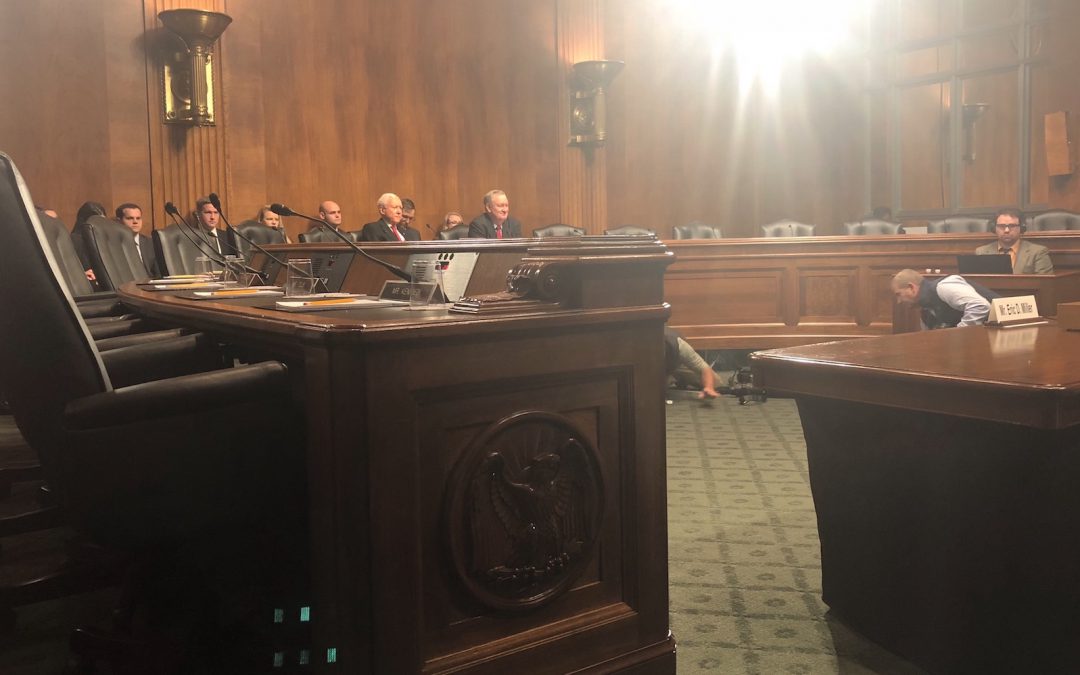WASHINGTON – Even though the Senate is on recess, the Senate Judiciary Committee continued confirmation hearings for federal judge nominees for the 9th U.S. Circuit Court of Appeals, Federal Claims Court and the U.S. District Court in Oregon.
Republican Sens. Orin Hatch of Utah and Mike Crapo of Idaho were the only members to attend the hearing. Crapo said the committee wanted to move nominations as quickly as possible for the sake of the nominees as well as to lessen the backlog of vacant seats. He said the committee hoped to have the two appeals court nominees as well as the two others confirmed by the end of the year.
Crapo’s first question for the 9th Circuit nominee, Eric D. Miller concentrated on tribal issues. Crapo stated that “concern has been raised” regarding Miller’s approach to tribal sovereignty and tribal rights and that “a number of cases have been brought to” the committee’s attention.
Miller affirmed his belief in the sovereignty of Native American tribes and tribal rights to only two members of the committee on Wednesday.
Last year Miller argued before the United States Supreme Court for the Lewis v. Clarke case. Through Miller’s efforts, the Supreme Court ruled that the sovereign immunity of an Indian tribe does not bar damages actions against tribal employees.
In another case, Miller obtained a decision from the U.S. Court of Appeals for the 10th Circuit that invalidated the Secretary of the Interior’s regulations to tribal gaming when a state and an Indian tribe have not agreed to a gaming compact.
Miller stressed his impartiality by highlighting his independent career and legality of tribal sovereignty.
“In any of those cases whether government or private practice my role has been that of an advocate,” said Miller. “My job as an advocate is not to advance my own views, but to advance the clients views.”
Miller said as a judge he would not advocate for either side but follow the letter of the law. In accordance with the law, Miller mentioned tribal treaties as a sign of good faith an impartiality.
“The treaties of the tribe must be respected. They must be understood as the tribes would have understood them,” said Miller. “Those are principles that were sadly not always honored throughout our history but their important principles.”
The hearing adjourned just before a full hour passed. Since Crapo and Hatch were the only members present, the record for the committee will stay open for one week to allow absent senators to submit questions to the nominees.

